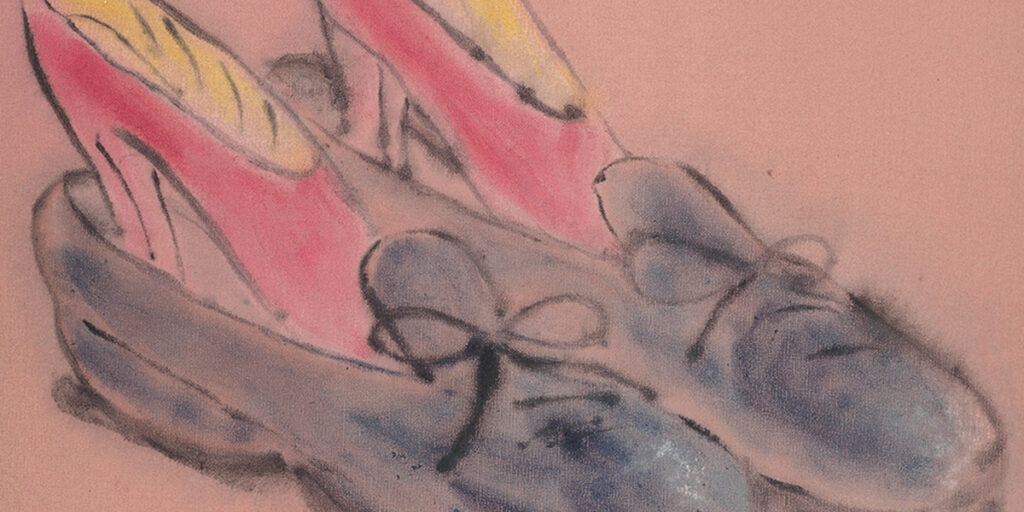
Detail from the cover art of issue no. 245, Joeun Kim Aatchim’s Piggyback (Amused), 2019.
Among the numerous accolades I received as a high school student was the honorific, awarded by the Hinsdale Central class of ’95, of worst driver. There’s something about cars, and driving culture at large, that’s never wholly agreed with me. Even now, when an Infiniti cuts me off on the freeway, I’m tempted to ram it in the name of eternity and of all language art.
Nevertheless, Olivia Sokolowski’s racy poem “Lover of Cars,” published in the new Fall issue of the Review, came to me as a revelation—a revved-up paean to “all those Stingers Jaguars Tiguans Fiat 500s / and San Remo Green Beemer i4s” in the showroom of the author’s imagination:
I want to wrap
my face tight with a silk scarf and spiral down
a Cinque Terre highway in an Alfa Romeo
the color of my innerlip I want to slip deep as a splinter
in a black Countach
What I love most about this swerving verse is how Sokolowski taps the brakes on her own autoerotic fantasy (“but that’s for when I graduate / from Honda Girl”). “Lover of Cars” made me wonder if the same hapless instructor at Hinsdale Central taught us both driver’s ed and sex ed for a good reason—the point of each course being to prevent a life-altering accident.
You can learn more about how “Lover of Cars” came down the assembly line in this month’s Making of a Poem; it makes me wish Infiniti or Honda would name a vehicle after Sokolowski’s poetic alter ego, Olivia+. In fact, any number of our Fall issue contributors could have an automobile named in their honor. The Bei Dao would make a revolutionary electric vehicle; we hope you’ll feel as transported as we were by our extended excerpt from the author’s long-awaited poetic autobiography, propulsively translated from the Chinese by Jeffrey Yang. And it’s easy to imagine packing the family into a Jolanda Insana for a long weekend; as the late poet writes, in Catherine Theis’s plucky translation from the Italian, “the streets of the sublime are endless.”
The de la Torre and the Tanaka, too, sound like high-performance vehicles. Not that all poems have to be GTI. Nora Claire Miller’s “Rumor” is more likely to derail you, while Katana Smith’s poetic still life “& Nothing Happens” stops time altogether; D. A. Powell’s “As for What the Rain Can Do” shows how poetry and weather can “turn on a dime.”
At the risk of driving my extended metaphor too far, I can’t resist ending with a little story about poetry and cars. The Ford Motor Company once invited Marianne Moore to float possible names for a new sedan. Ford ultimately rejected all of Moore’s suggestions tout court, including the Bullet Lavolta, the Intelligent Whale, the Mongoose Civique, and the Utopian Turtletop, but I’d take any of her recommendations over the marketing department’s choice: the Edsel.
Srikanth Reddy is the Review‘s poetry editor.
from The Paris Review https://ift.tt/cBVYhSi
Comments
Post a Comment